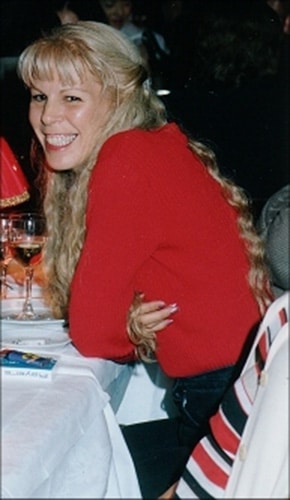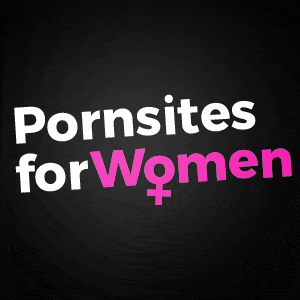If you frequent adult industry news outlets and/or gossip sites, you don’t have to look far to see the industry’s various black eyes on full display. From confirmed fact to rampant rumor, the news regarding the internal health (literal and figurative) of the adult industry is, generally, not at all positive.

From blogs to boards, magazines to podcasts, commentary rightfully criticizing the mistreatment of talent and consumers is abutted by screeds decrying widespread support of piracy and allegations of far more serious criminality. All told, the industry’s collective public face is looking like it just went five rounds the cage with one of the UFC’s Diaz brothers: there have been no knockout blows, but we’ve been peppered with jabs that leave us bloodied, battered and noticeably staggered.
Read on…
The irony here is that in many ways, the industry has never enjoyed more widespread acceptance, or at least tolerance, in the mainstream than it does now. In previous eras, some of the same demographics that now accept porn as a relatively harmless fact of life likely would have expressed staunch anti-porn views. Where coverage of porn in the mainstream media used to be rare and almost entirely negative, porn is now a near-daily subject, and portrayal of the industry and the performers who comprise it is far more balanced than it used to be.
For years now, adult entrepreneurs have been debating whether or not the “mainstreaming” of porn is a good thing. Some have welcomed the added attention showered on the industry, believing that the increased exposure to the consumer market can’t help but drive revenues higher, while others are wary of the increased scrutiny that is part and parcel of attracting all those additional eyeballs.
Contradictory as it might seem, both schools of thought regarding porn’s mainstreaming are correct: the additional exposure the industry has received over the course of the Internet Age has doubtlessly increased the aggregate revenue of the industry substantially over its pre-Internet levels, but there’s also no question that the additional attention has brought with it more criticism, more examination of the industry’s business practices, and, inevitably, more government regulation.
The good news is that there’s a way to turn this apparent public relations Catch-22 to your company’s advantage, provided that you run your company in such a way that it can exploit the opportunity at hand, that is. If you are troubled by a lot of the industry’s aforementioned bad news – and the “bad apples” who are largely responsible for that news – the key is to differentiate and distance yourself from the crowd, and to make sure your differences are readily apparent to consumers, regulators and your peers, alike.

In my experience, some of the companies in a position to take greatest advantage of a legitimate claim of being ethical, fair and forthright haven’t done so simply because tooting their own horn isn’t a big part of their corporate culture. As Sssh.com owner Angie Rowntree put it during a recent conversation we had: “It never occurred to us that we should make a big deal out of the fact that we treat performers and customers with respect and decency, because to us, that’s just the way things are done.”
Rowntree got her first real taste of how beneficial simply being good can be from a PR perspective when Sssh became the focus of interest from ABC Nightline. Initially nervous about having the ABC crew on set, when Rowntree saw the resulting coverage, she was pleased to see that one of the things that shone through most clearly was the Sssh ethos, which includes making sure the performing talent is taken care of and treated with the dignity and deference due any highly valued employee.
Earlier I referenced the fact that in order to take advantage of the opportunity presented by the negative press that the industry is currently receiving, your company must be up to the task; what I mean by that is if your company cannot stand up to the scrutiny, it makes no sense to invite it. It’s also preferable to have third-parties deliver the bulk of the praise about you, which is not likely to happen unless they think you’ve earned it.
In Rowntree’s case, Sssh.com received the sort of accolades that not only resonate with the porn consumer market, but with the mainstream media outlets that have the potential to deliver new and different customers to adult websites, including first-time purchasers who are unlikely to have arrived there via search engines or by browsing free adult sites: unprompted and unscripted, performer Jeanie Marie told Nightline that “Working for Sssh is like working for HBO.”
It’s a simple statement, one that might not seem that significant at first, but consider what it really communicates: that Sssh is on par with one of the biggest and most respected brands the entire entertainment world where its ethics and business practices are concerned.
In contrast to the horror stories that we hear (far too often) about the experience of shooting porn from a performer’s perspective, Jeanie Marie’s comment spoke volumes in terms of differentiating Sssh.com from the seedier side of the adult market, which in turn makes consumers feel better and more confident about giving the site their business.
The upshot of this anecdote is that Rowntree has come to realize that, historically, one of her company’s strongest traits – its fundamental, core ethics – had been largely overlooked in its own marketing. Since the Nightline report (and the similarly glowing coverage in TIME that preceded it), Rowntree has been working to get the word out that her site is all about respecting and supporting the people who are most important to Sssh: their performers and their customers.
On the consumer front, Rowntree has always been just as vigilant about making sure people are happy and well served as she has been where the performers are concerned – a crucial consideration, given that the site is positioned in its marketing as one that listens to its members, acts on their requests, and responds to their concerns.
At the risk of beating a dead horse, I will again emphasize the point: This means of marketing your company is only truly available to you if your company is worthy of it. If you step out into the market to proclaim your ethical greatness while undertaking content production, billing and customer service practices that reveal your public relations rhetoric to be empty, the market’s more attentive porn consumers will eat you alive.
This is the age of social networking and information sharing, where fibs are exposed quickly and brutally, and the “Streisand Effect” rules the day. In such an environment, you can’t fake being ethical and upstanding – and you shouldn’t try fake it, anyway, even if you could somehow pull the wool over the market’s eyes. There’s little that’s less ethical than feigning ethics, after all.
[This article originally appeared in XBIZ World Magazine, The Adult Industry Source For The Digital Market. Reprinted with permission.]








 Erotic Cinema For Discerning Adults
Erotic Cinema For Discerning Adults Anonymous Adult Search
Anonymous Adult Search
I 100% agree with this article. Consumers in any industry are drawn toward brands that “do the right thing,” so if this is part of your company’s core beliefs, make sure you let people know about it! There is a fundamental shift happening in the adult industry right now, and the companies that innovate and treat their customers and employees with respect will win.